The Rise of Totalitarianism 1919-1939
History
abstract
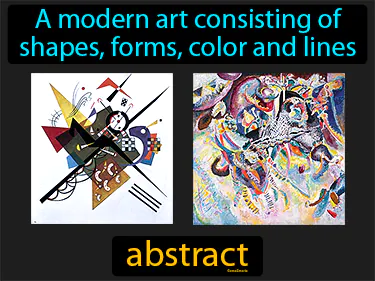
A modern art consisting of shapes, forms, color and lines. Abstract. Abstract art started in the early 20th century, focusing on ideas rather than direct representation.
atheism
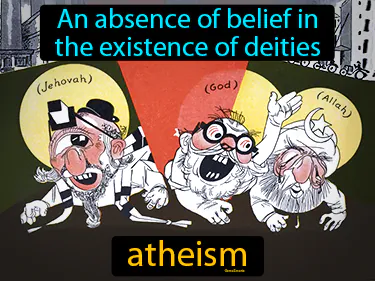
An absence of belief in the existence of deities. atheism. Atheism is the view throughout history that there are no gods or divine beings.
Benito Mussolini
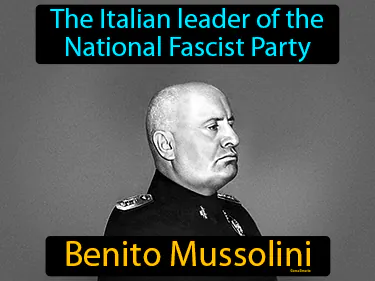
The Italian leader of the National Fascist Party. Benito Mussolini. He was the dictator of Italy from 1922 to 1943 and played a key role in the creation of fascism.
Black Shirts
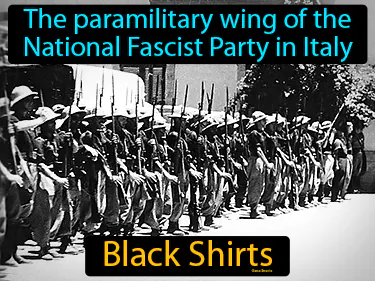
The paramilitary wing of the National Fascist Party in Italy. Black Shirts. The Black Shirts were a group of militant supporters of Mussolini who used violence and intimidation to help establish and maintain his fascist regime.
chancellor
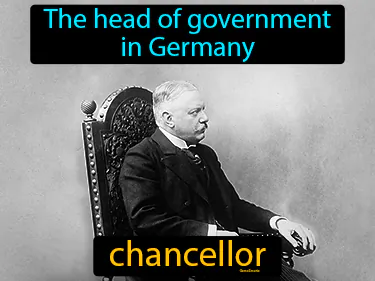
The head of government in Germany chancellor. The chancellor is like the country's top leader, similar to a prime minister in other nations.
collective
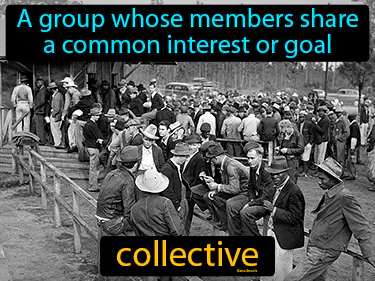
A group whose members share a common interest or goal. Collective. In History, a collective often refers to people working together for a shared purpose, like early farmers forming communities to farm land together.
Comintern
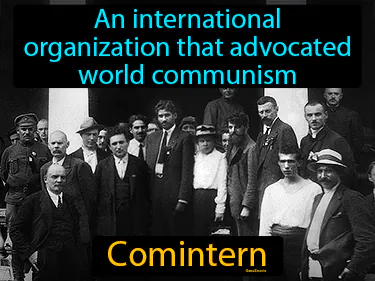
An international organization that advocated world communism. Comintern. It was a Soviet-led group aiming to promote and coordinate communist parties worldwide.
command economy
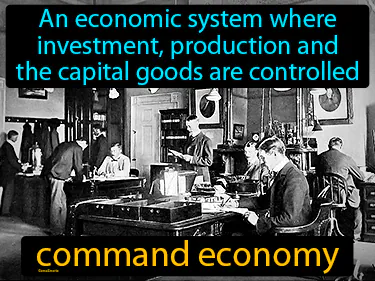
An economic system where investment, production, and the capital goods are controlled. Command economy. In a command economy, the government makes all the major decisions about the production and distribution of goods and services.
dada
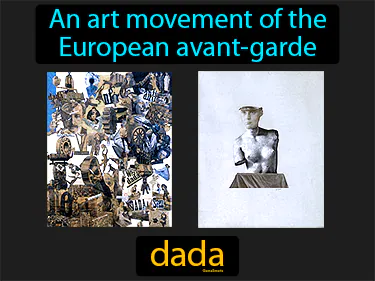
An art movement of the European avant-garde. dada. Dada is an early 20th-century movement that rejected traditional art and embraced chaos and irrationality to protest the horrors of World War I.
disarmament
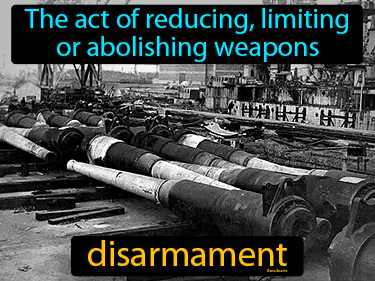
The act of reducing, limiting or abolishing weapons. disarmament. In history, disarmament refers to the process where countries agree to reduce or eliminate their military weapons to promote peace.
fascism
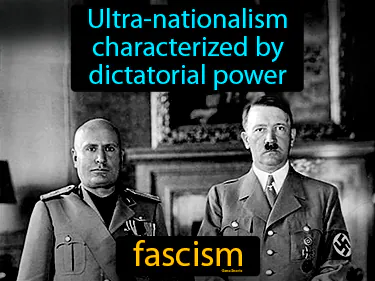
Ultra-nationalism characterized by dictatorial power. Fascism. Fascism is a political ideology where a dictator has complete control and promotes extreme nationalism, often suppressing opposition and freedom.
Federal Reserve System
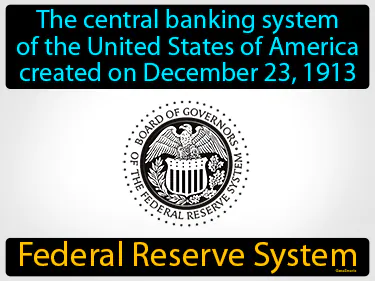
The central banking system of the United States of America created on December 23, 1913. Federal Reserve System. The Federal Reserve System is the central bank of the U.S. responsible for managing the nations money supply and stabilizing the economy.
finance

A study which figures out how people, businesses and groups make and use money. Finance. In history, finance is like the way kingdoms managed and spent their treasures and resources.
flapper
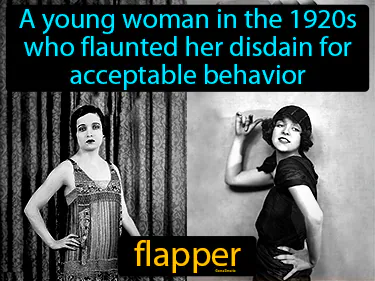
A young woman in the 1920s who flaunted her disdain for acceptable behavior. Flapper. A flapper was a fashionable young woman in the 1920s famous for her energetic freedom and challenging traditional norms.
Franklin D Roosevelt
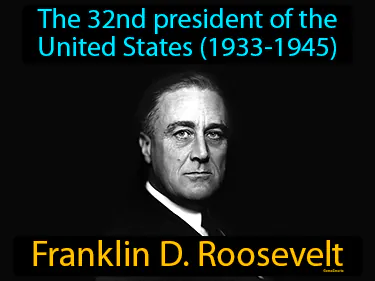
The 32nd president of the United States 1933-1945. Franklin D Roosevelt. He was the leader who guided America through the Great Depression and most of World War II.
general strike
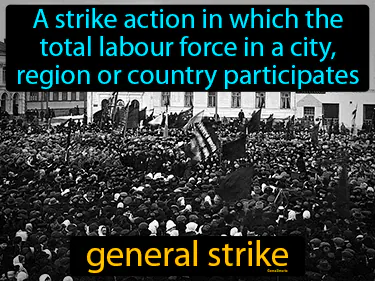
A strike action in which the total labour force in a city, region or country participates. General strike. A general strike is when all workers in an area stop working together to demand better conditions or changes, significantly impacting society and the economy.
Gestapo
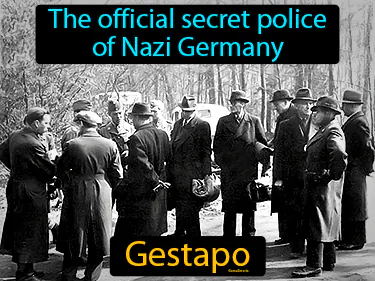
The official secret police of Nazi Germany. Gestapo. The Gestapo was the Nazi regime's feared secret police force responsible for suppressing opposition and enforcing Nazi policies during World War II.
Great Depression
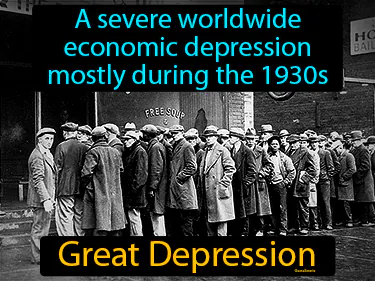
A severe worldwide economic depression mostly during the 1930s. Great Depression. The Great Depression was a time when many people lost their jobs and struggled to afford basic necessities due to a major economic downturn.
Gulag
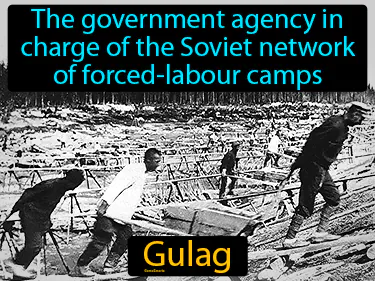
The government agency in charge of the Soviet network of forced-labour camps. Gulag. It was a system of labor camps in the Soviet Union where people were imprisoned and forced to work under harsh conditions.
Harlem Renaissance
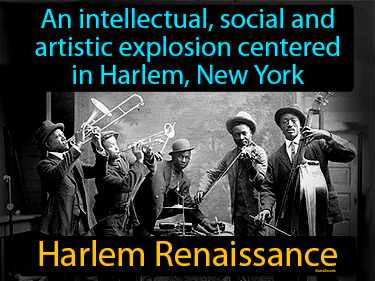
An intellectual, social, and artistic explosion centered in Harlem, New York. Harlem Renaissance. The Harlem Renaissance was a cultural movement in the 1920s where African American artists, writers, and musicians celebrated Black culture and identity.
Kellogg-Briand Pact
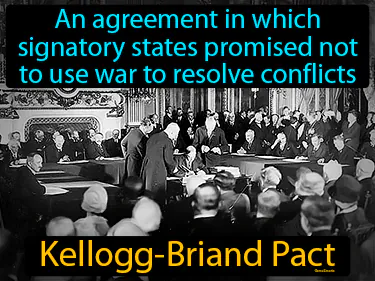
An agreement in which signatory states promised not to use war to resolve conflicts. Kellogg-Briand Pact. The Kellogg-Briand Pact is a 1928 international treaty that aimed to prevent wars by outlawing the use of war as a tool for resolving disputes.
kulaks
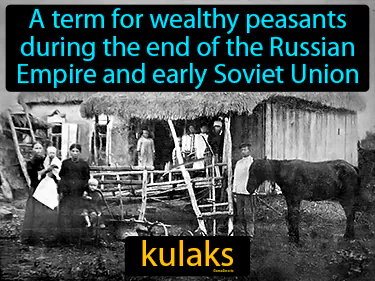
A term for wealthy peasants during the end of the Russian Empire and early Soviet Union. Kulaks were relatively affluent farmers who owned larger farms and employed labor, making them targets during Soviet collectivization.
Maginot Line

A line of concrete fortifications built by France to deter invasion by Germany. Maginot Line. It was a defense system built before World War II to protect France from German attacks.
March on Rome
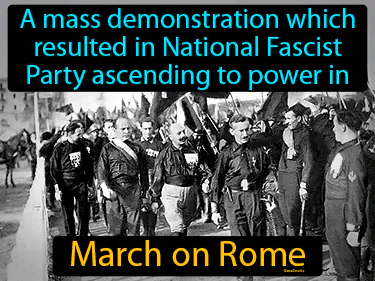
A mass demonstration which resulted in National Fascist Party ascending to power in the Italy. March on Rome. The March on Rome was a 1922 event where Mussolini and his followers forced the Italian king to hand over power, marking the start of fascist rule.
New Deal
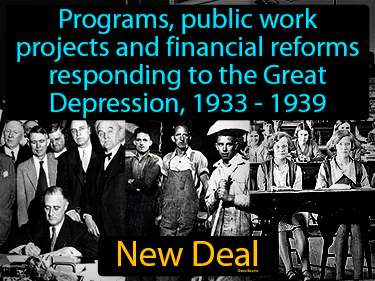
Programs, public work projects and financial reforms responding to the Great Depression, 1933 - 1939. New Deal. The New Deal was a series of government initiatives implemented by President Franklin D. Roosevelt to help the United States recover from the Great Depression.
Nuremberg Laws
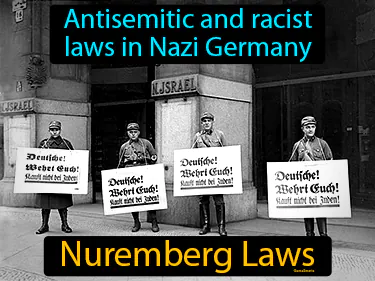
Antisemitic and racist laws in Nazi Germany. Nuremberg Laws. The Nuremberg Laws were discriminatory laws enacted in 1935 that stripped Jews of German citizenship and prohibited them from marrying or having relations with non-Jewish Germans.
overproduction
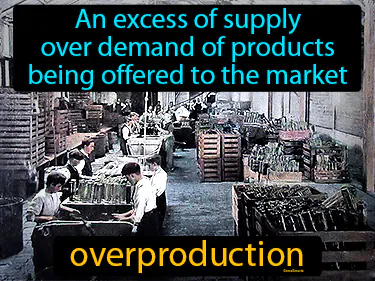
An excess of supply over demand of products being offered to the market. overproduction. In history, overproduction often led to economic downturns when products couldn't be sold, causing prices to drop and businesses to struggle.
Prohibition
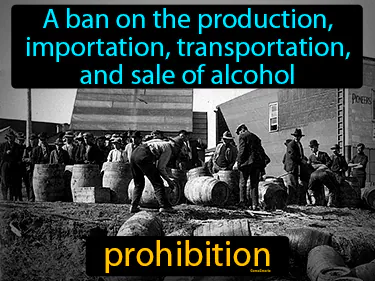
A ban on the production, importation, transportation, and sale of alcohol. Prohibition. It was a period in U.S. history 1920-1933 when alcohol was illegal.
psychoanalysis
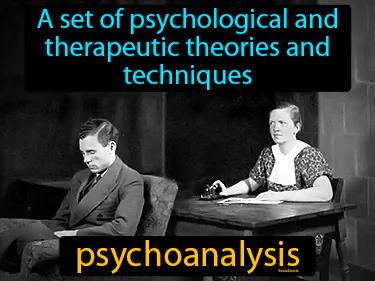
A set of psychological and therapeutic theories and techniques. Psychoanalysis. Developed by Sigmund Freud in the late 19th century, psychoanalysis is a method for understanding and treating the unconscious mind.
Ruhr Valley
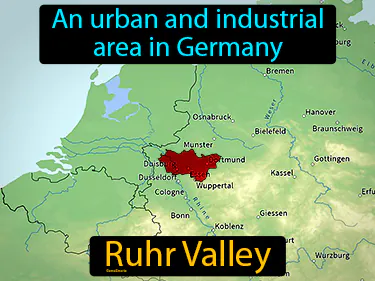
An urban and industrial area in Germany. Ruhr Valley. The Ruhr Valley was a crucial industrial region, especially during the 20th century, known for its coal mining and steel production.
russification
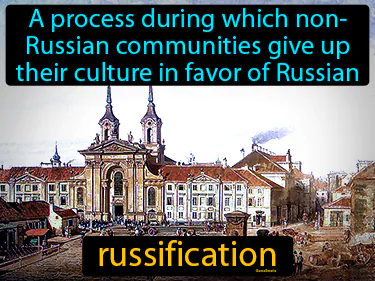
A process during which non-Russian communities give up their culture in favor of Russian. Russification. It is a historical policy aimed at promoting Russian language and culture at the expense of local identities within the Russian Empire and Soviet Union.
socialist realism
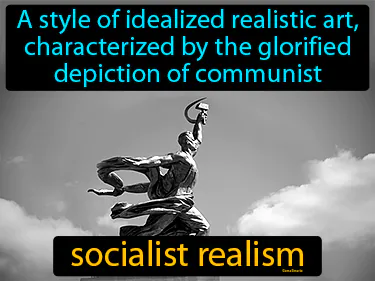
A style of idealized realistic art, characterized by the glorified depiction of communist values. Socialist realism was an art movement that promoted communist ideals and values through idealized and optimistic depictions in visual arts and literature.
speakeasy

An illicit establishment that sells alcoholic beverages. Speakeasy. During Prohibition in the 1920s USA, speakeasies were secret bars where people could illegally buy and drink alcohol.
surrealism
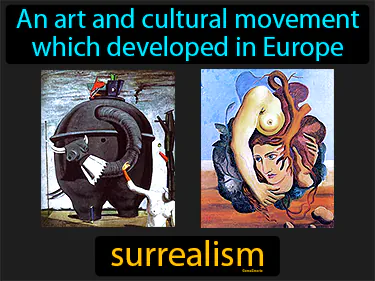
An art and cultural movement which developed in Europe. Surrealism. Surrealism is a 20th-century movement that sought to unleash the creativity of the unconscious mind by depicting dream-like scenes and strange, illogical combinations.
Third Reich
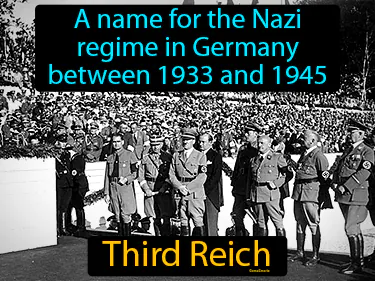
A name for the Nazi regime in Germany between 1933 and 1945. Third Reich. The Third Reich was the period when Adolf Hitler and the Nazi Party ruled Germany, leading to World War II and the Holocaust.
totalitarianism
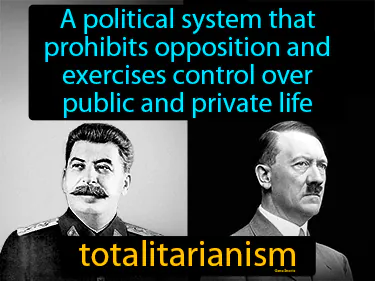
A political system that prohibits opposition and exercises control over public and private life. Totalitarianism. In History, totalitarianism is when a government has complete control over every aspect of people's lives.